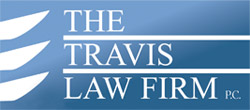A new law allows for the use of marijuana for medical purposes in Pennsylvania. The state legislature passed the law allowing the use of cannabis in the Medical Marijuana Act. Pennsylvania is the 24th state to legalize medical marijuana. However, recreational use of marijuana in Pennsylvania is still considered illegal.
If you are facing a marijuana criminal charge, you need to contact an Edinboro marijuana defense attorney as soon as possible. A conviction on a Pennsylvania marijuana charge can follow you the rest of your life impacting everything from where you attend school to the job that you want and your ability to own a firearm.
Marijuana For Medical Use
Under Pennsylvania’s medical marijuana law, up to 25 processors and growers of medical marijuana are allowed within the state and up to 50 medical marijuana dispensaries can operate within the state. Each dispensary is allowed to open up to three locations.
Numerous medical conditions qualify for the use of medical marijuana in Pennsylvania, including the following:
- Autism
- Cancer
- Epilepsy
- HIV/AIDS
- Huntington’s Disease
- Multiple Sclerosis
- Parkinson’s Disease
- Spinal cord nerve damage
To find out if you are eligible to use medical marijuana for a specific medical condition, you should discuss the matter with your doctor or medical provider. If a condition isn’t currently covered under Pennsylvania’s medical marijuana law, it could be added in the future.
To obtain authorization for the use of medical cannabis, a patient must receive a recommendation from his or her medical provider. Physicians who choose to use medical marijuana as part of treatment plans must be registered with the Pennsylvania Department of Health. They must keep detailed and accurate records reflecting each patient who uses medical marijuana.
Patients using medical marijuana must keep a card which authorizes them to purchase medical marijuana in pill form, or as an oil, gel, ointment, cream, liquid or tincture. Buds and flowers which can be smoked are not included.
Non-medical Marijuana Use
Anyone who uses marijuana without authorization is subject to a being charged with illegal possession of marijuana or other criminal offenses related to marijuana. Because marijuana is a Schedule I drug, convictions on drug charges relate to marijuana carries stiff penalties, including fines and jail time.
There are several criminal charges related to marijuana under Pennsylvania’s criminal statute, including:
- Possession of Marijuana
- Cultivation of Marijuana
- Distribution of Marijuana
- Marijuana Trafficking
- Use and Possession of Drug Paraphernalia
If you are charged with the lowest offense, which is possession of 30 grams or less of marijuana, for a first offense conviction you could be punished as a misdemeanor with 30 days in jail and/or a $500 fine. If the amount of marijuana in your possession is over 30 grams, you could spend up to one year in jail and/or pay a $5,000 fine.
In addition to fines and jail time, you have a criminal record that could prevent you from getting the job you want; prevent you from receiving federal student loans for college; and, hurt your chances in a child custody case. For a first time conviction, your driver’s license is suspended for six months. This could impact your ability to keep your job and do other tasks. For more serious marijuana charges, the penalties for a conviction are even more severe.
Have You Been Charged With A Marijuana Crime in Pennsylvania?
If you have been charged with a criminal offense involving marijuana, you need to contact an Edinboro marijuana defense attorney who can provide legal counsel for your situation. Do not assume that a marijuana charge is minor. You could be facing substantial jail time for a marijuana conviction.
Contact The Travis Law Firm toll free at (800) 401-2066 to schedule a free consultation with one of our Edinboro criminal defense lawyers. Being charged with a drug crime is serious. You need a serious Edinboro defense attorney to protect your legal rights.
